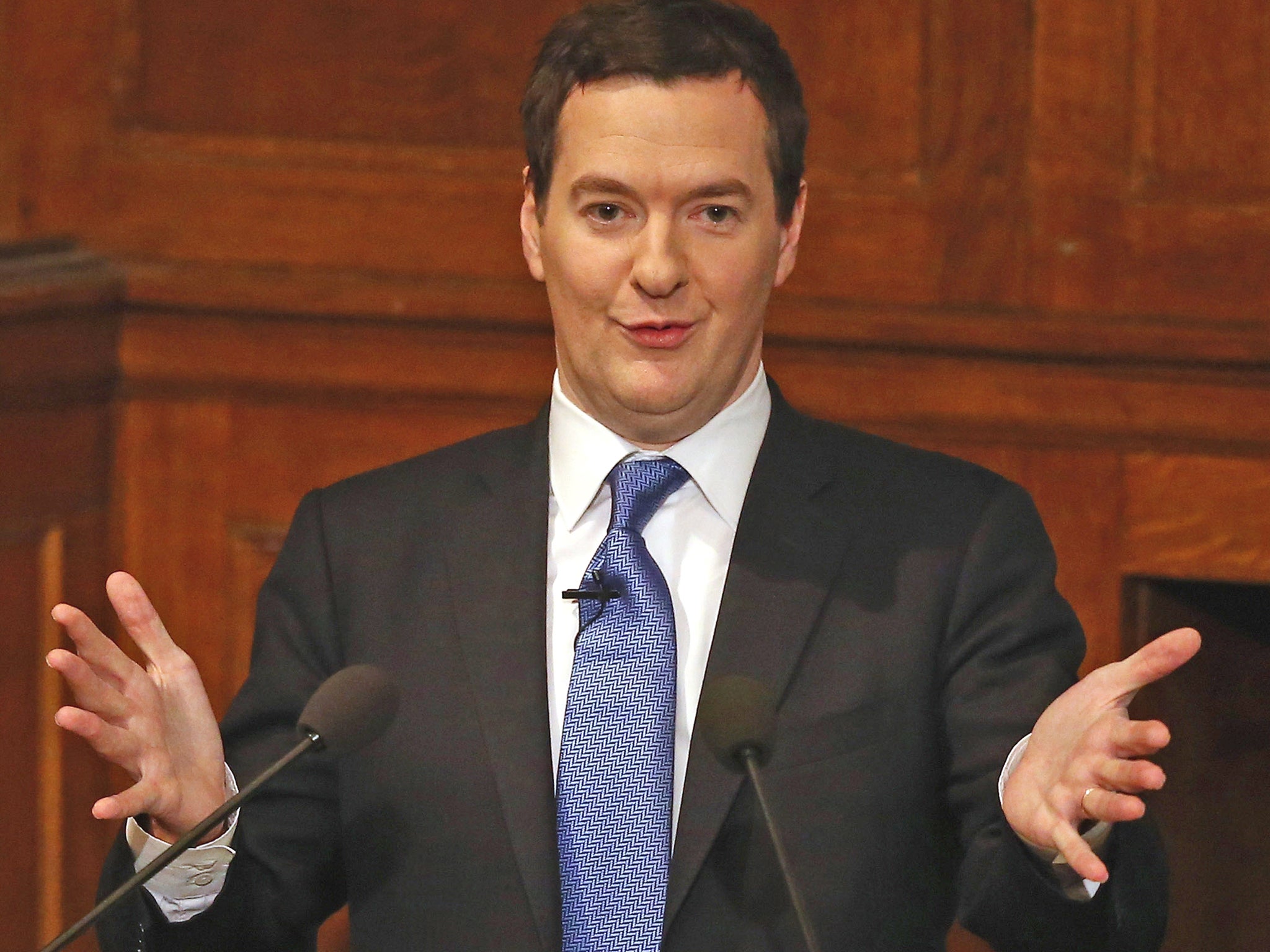George Osborne mulls plan to ask workers to pay more into their pensions to plug 'massive hole'

Your support helps us to tell the story
From reproductive rights to climate change to Big Tech, The Independent is on the ground when the story is developing. Whether it's investigating the financials of Elon Musk's pro-Trump PAC or producing our latest documentary, 'The A Word', which shines a light on the American women fighting for reproductive rights, we know how important it is to parse out the facts from the messaging.
At such a critical moment in US history, we need reporters on the ground. Your donation allows us to keep sending journalists to speak to both sides of the story.
The Independent is trusted by Americans across the entire political spectrum. And unlike many other quality news outlets, we choose not to lock Americans out of our reporting and analysis with paywalls. We believe quality journalism should be available to everyone, paid for by those who can afford it.
Your support makes all the difference.Workers could be asked to put a bigger slice of their income into their pension scheme under plans being considered by the Conservative Party.
The move is designed to plug a “massive hole” in Britain’s pension provision. An estimated 11 million people are not saving enough to give them an adequate income in retirement and face the prospect of “pensioner poverty".
George Osborne, the Chancellor, is to consider a plan to raise the minimum contribution rate for private sector pension schemes from eight to 12 per cent of salary. Workers not in a scheme are now being automatically enrolled in one when they join a company – but can choose to opt out. At present, the employee contributes four per cent, the company three per cent and the Government one per cent through a tax credit. Under the plan, these figures could rise to six per cent, 4.5 per cent and 1.5 per cent respectively.
The increase would be phased in, perhaps over five years. It could be dependent on wage increases, so workers felt they were putting part of their rise into their pension. Employees already in company schemes could eventually be asked, or even forced by legislation, to boost their contributions as their earnings rise.
Mr Osborne is believed to be considering some measures to boost saving in his Budget in March. However, proposals to reform pensions may be delayed until the Conservative manifesto at next year’s general election.
Some Tories believe that more radical action is needed to head off a pensions crisis and are pressing the Government to make a 12 per cent contribution compulsory. But the idea is being opposed by Steve Webb, the Liberal Democrat Pensions Minister. A compulsory 12 per cent rate is thought unlikely to be adopted by Mr Osborne as it would be seen as tax hike, undermining Tory plans to warn that a Labour Government would raise taxes and borrowing.
Instead, the Chancellor may opt for a pilot scheme to test the water of higher contributions under automatic enrolment, while still allowing workers to opt out. The trial would test whether more workers would opt out if contribution rates were higher.
The scale of Britain’s “pensions gap” will be highlighted on Wednesday by Policy Exchange, a think tank with close links to Downing Street. It warns of a “demographic timebomb” as the proportion of people aged 65 and over increases from 17 per cent to 24 per cent over the next 50 years.
Its report says: “The UK has a massive hole in its pensions provision and that this represents a very real threat to the sustainability of the Government’s finances in the medium term... The UK’s saving for pensions is in such a perilous state that delaying is simply not an option.”
Policy Exchange calculates that a worker on the £27,000 a year average wage will need to save more than six and a half times more than they do at present to ensure the recommended retirement income of £16,200 a year.
The think tank proposes a compulsory 12 per cent minimum contribution, with workers allowed to opt out only if they already have enough funds to provide a pension of at least £20,000 a year.
Its report says: “For those who argue that compulsion is not normal in the UK, we would point out that tax, national insurance contributions and education are all compulsory. A failure to save sufficient funds for your retirement risks the state (and therefore other taxpayers) having to pick up the bill. So opting out is not a free option it is a potential cost to the rest of society.”
Ministers say that automatic enrolment, which began last October, is proving a success. They expected one in three employees to opt out but so far more than 90 per cent are remaining in the schemes into which they are enrolled. However, that figure could fall as the programme is extended to smaller companies.
Subscribe to Independent Premium to bookmark this article
Want to bookmark your favourite articles and stories to read or reference later? Start your Independent Premium subscription today.
Join our commenting forum
Join thought-provoking conversations, follow other Independent readers and see their replies
Comments